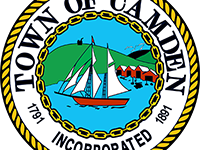SAD 28 and Five Town CSD Rockport Candidate Ellen Reynolds
On June 10, Rockport will vote for two candidates from a field of three candidates to serve on the School Administrative District 28 (Camden-Rockport K-8) and Five Town CSD (Camden Hills Regional High School) school boards.
PenBayPilot.com has circulated questions to school board candidates, who include Brieanna Gutierrez, Stacey Contakos and Ellen Reynolds. Here, Ellen Reynolds responds.
Please present a short biography of yourself.
Born the last child of Tracy Satterthwaite (teacher) and Roger Phillips (medical illustrator), I entered the world with a scrappiness necessary for being the youngest of four. I was raised in Urbana, Illinois, where, thanks to the University of Illinois, I was exposed to a variety of cultures and concepts that helped to shape my understanding of the world from an early age.
The granddaughter of a long-time Illinois state representative, and niece of a long-time Urbana mayor, I was introduced to civic duty at a young age and took seriously the role of serving our community. When the internet became widely available, our hesitant mother felt it only fair to trade AOL chat hours with letter-writing for Amnesty International.
Following this lead, in 2003 I spent a year volunteering with the Americorps NCCC program, stationed in Washington, D.C., and serving the Eastern Seaboard in variety of unmet human and environmental needs. It was there that I truly developed a love for service and grew my understanding of the many ways in which we can bolster our communities.
I received my undergraduate degree in environmental science and marine ecology from the University of North Carolina and pursued a career with NOAA as a nationally certified fisheries biologist.
I landed in Midcoast Maine in 2010 after meeting my now-husband aboard a fishing vessel in Alaska. Since then, we have built a home and family here in Rockport, and I have put my roots and soul into this community. I have served as a board member for Children’s House Montessori school, where I eventually moved into the Executive Directorship, and currently serve on the boards for Sundog Outdoor Expeditions and Megunticook RiverKeepers, as well as on the Megunticook River Citizens Advisory Committee for the Town of Camden. I received my master’s degree in 2017 from Maine Maritime Academy in international logistics management, and in 2018 we purchased Beloin’s (now Drift Oceanside Inn), which I have been actively running since.
I am grateful for the opportunity to serve, and thank you for your consideration.
What do you hope to accomplish as a public K-12 school board member for your town?
My initial hope is to listen and learn where my skills can be best utilized. My longer-term hope is to be a strong and reliable board member who operates in an honest and transparent manner to continue bolstering the wellbeing of our school district and the children it supports.
I hope to offer creative thinking and a collaborative work mentality that encourages community engagement and helps our district move forward in a healthy and productive manner. Most of all I hope to continue building a school system that is robust and capable of supporting children from all socioeconomic backgrounds and all levels of ability–fostering community, connection, and a sense of belonging to build capable, kind, and contributing citizens of tomorrow.
How do you view the role of public education in the U.S., in Maine, and in Camden and Rockport?
Public education from a federal perspective is largely legislative and regulatory– setting national policies, collecting and analyzing national education data, and historically providing federal funding in a number of ways to support a variety of different needs. The federal level has also historically set the tone for equity and inclusion in education, and the protection of civil rights through federal policies like 504s, IEPs, Title IX etc.
Public education from a state perspective is largely bureaucratic regarding the responsibilities of certifying educators and administrators, tracking and supporting professional development and workplace readiness, and creating accountability systems for things like special education and progress assessment. The state sets educational standards for curriculum, develops achievement and equity policies, and manages accreditation and compliance.
Public education on a local level includes a variety of logistical responsibilities, from hiring and training staff to building and grounds maintenance, all which additionally fall under the responsibility of budget management. But the local level of public education gets to be a little more fun also, from community engagement opportunities to planning of student extracurriculars, building school culture to creating forward-thinking curriculum designs.
Should pre-K programs be expanded?
If the school district has the capacity to expand the pre-K program, or the capacity to consider it, I am in support of that decision.
Data indicates that strong and well-executed early education provides the foundation for long-term academic strength, starting with school readiness and ending with higher graduation rates, with a multitude of improved skill sets in between. It is my hope that this program specifically focuses on addressing opportunity gaps, and ensures adequate resources to connect with low-income families and provide much needed and often inaccessible quality childcare to families that truly need it.
I believe strong pre-K programs can additionally help families to identify learning or behavioral disabilities and help to build a framework of support for children early on.
I am aware that education requires the support of tax dollars, as well as significant planning, and that every new opportunity must be weighed against the tax and labor burdens it places on the local community. Bearing that in mind, research indicates that early education reduces the longer-term burden on resources and provides an economic benefit if the initial capital investment is achievable. Which is to essentially say that if it's feasible, there are both long-term educational and economic benefits to a public pre-K program.
Is the free meal program worthwhile and is there enough local fresh food from area farms being integrated into the meal program?
Yes, so long as the free meal program remains financially manageable, I believe it is worthwhile to maintain. Having been raised on free lunch myself due to economic status, I appreciate the intention of leveling the playing field and reducing the stigma connected with children whose families are in financial need. Access to food for all children leads to an ability to be focused and present in school without the intrusions of hunger or anxiety around food scarcity. Free meal programs additionally ensure equal access to nutrients for all children and can provide a framework for nutrition and health education.
I am not well-versed in the availability of local farm-fresh foods, or the nuances that go into making those connections possible. Conceptually, I support the idea of the local agriculture sector supplying food for school meals, and believe it has the capacity to lead to healthier and fresher meals and reduce the national-level logistics involved in food supply.
If innovative and sustainable funding and management is achievable, I believe there is an additional benefit in bolstering the local economy and keeping funds within our community. If the school district can support local agriculture, and local agriculture can support the school district without increasing the burden to either party, then this framework for food supply may be ideal– though I can imagine some seasons of the year food supply is potentially more difficult to achieve.
Does the curriculum adequately teach all children and teens about their role in a participatory democracy?
It’s my understanding that the Five Towns school district places a strong emphasis on its civic and democracy curriculum, with an intention of bolstering civic engagement and promoting a firm understanding of the democratic process. Without statewide standardized testing on this subject specifically, it’s difficult to make a measurable statement on the effectiveness of these efforts. Nevertheless, the civics curriculum appears to be robust and comprehensive, and the efforts to connect students to their role in democracy are evident. As with everything, I’m sure it is not a perfect or static system and will need to continue being fostered to remain strong and relevant.
Should the subject of personal finance be addressed in all grades?
I haven’t thought extensively about the application of personal finance across all grade levels, but I would say yes, so long as the content is age appropriate. I don’t believe a five-year-old needs to be learning how to balance a budget, but it’s a great age for fundamental financial concepts like saving versus spending and delineating basic needs from wants, both of which can begin to build the foundation for financial literacy.
As students progress, financial education would evolve into more complex concepts that help them to build competence and independence to support financial viability in adulthood.
As a standard, students should leave the school system with a working understanding of budgeting, saving, and the ability to make sound financial decisions. All children do not come from homes with equal understanding of money management, meaning school programming is necessary to lessen the gap and ensure all children have access to critical knowledge in personal finance. These proficiencies will help to reduce debt, understand complex financial dilemmas, and encourage students to make sound decisions in their future.
Do the Camden-Rockport schools need to strengthen the science and technology curriculum. If so, how so?
Camden-Rockport schools have a strong commitment to science and technology, but as with anything, there is always room to grow– especially in the field of technology where information is rapidly evolving and requires flexibility and quick thinking to remain relevant. In the science curriculum, I am especially in support of programs like the project-based learning model in middle school and would love to see programs like this expanded upon.
Children learn through a variety of modalities, and I support programs that encourage interactive engagement and hands-on learning, especially those with obvious real-world applications. I personally favor science curriculums that get students outside and interacting with the natural environment to foster a love and appreciation for the natural world in partnership with practical education.
What is your opinion of book-banning in public school libraries? Are there any books you want pulled off the school library/classroom shelves?
It is my opinion that book-banning rarely, if ever, is an appropriate measure in education, and I do not personally have any books I want pulled off the school library shelves. I believe school library content should be curated to be developmentally appropriate, and I support access to diverse information that promotes intellectual freedom and enhances critical thinking.
I trust certified school librarians to curate a collection designed to meet academic and developmental needs, while considering student interests, reading levels, and a diversity of perspectives, and with a goal of developing understanding, empathy, and critical thinking.
Maine’s position on transgender athletes participating in girls sports has resulted in a federal suit against the Maine Dept. of Education. How should the state respond?
This feels like a loaded question that requires significantly more time and space to discuss fully, most especially because there are really two issues at hand here. The first is how Mainer’s feel about transgender athletes participating in girls’ sports, and the second is how we feel about the defense of those actions.
It is my opinion that the debate over transgender athletes is complex and requires further discussion to determine solutions that are not discriminatory and consider civil rights as defined by the law. This debate is in its infancy and may require more nuanced solutions to assure the safety and wellbeing of all children. I am comfortable with the method of response initiated by Governor Mills and appreciate the necessity for appropriate due process in accordance with the law.
Should the schools adopt a phone-free policy?
I am undecided on this subject and feel that a mandated phone-free policy for students will be a hard sell to parents. I support strict policies on phone use in the classrooms and consider personal devices to be an unnecessary distraction during periods of learning. I also understand that personal devices come with a multitude of downfalls including reduced focus and cognitive functioning, increased anxiety and depression, reduced physical health and impaired social development and interpersonal skills. Personal devices additionally provide platforms for cyberbullying, which can be difficult to track and result in serious, long-term emotional and psychological concerns. None of these issues should be taken lightly, and policies that ensure student wellbeing are paramount.
However, many families are now accustomed to communicating transportation logistics or other plan changes before and after school via cell phones, and the use of these tools would be difficult to revert from. It is also the case that parents often have anxieties about the ability to reach their children during potentially traumatic events like school shooters, and the loss of direct access to their children would be difficult.
I am aware that some students now use personal devices for health monitoring, and I would expect that to be an exception regardless of the determined policy.
Camden and Rockport are low-receiver towns, in the eyes of the state, resulting in minimal state funding aid. How will you, as a board member, help reduce the fiscal load on the taxpayer to fund education and maintain the facilities?
I consider grant-sourcing to be an essential part of funding for public education that requires persistent and ongoing diligence to be achieved well. General education funds are great, but I would also encourage the pursuance of grants for individualized programs like outdoor education, mental health support, girls in math and science, extracurriculars or other creative development concepts.
I would additionally encourage engagement from volunteers to provide helping hands or offer specialized learning options, while also deepening connections with local entities that can support internships or other service-learning opportunities and help to reduce the need for paid staffing.
Considering the decline in enrollment, I would encourage creative solutions to staffing and explore options to optimize teacher resources with a focus on reducing redundancy in a manner that continues to support trust and minimizes burnout for staff members. Lastly, I would consider the role of the parent-teacher association and encourage strategic fundraising in partnership with fun opportunities for community engagement and networking.
What books are you reading these days, and which do you recommend others read?
I am currently reading Crying in H Mart, We the Drowned, and Fight Right.
Fight Right is one of many research-based books by Drs. John and Julie Gottman, of The Gottman Institute. They offer evidence-based strategies and practical tools to support healthy and resilient relationships, and I strongly recommend any of their books.
I would additionally recommend A Heartbreaking Work of Staggering Genius by Dave Eggers, The Wind Up Bird Chronicles by Haruki Murakami, Tender Morsels by Margo Lanagan, and A Little Life by Hanya Yanagihara as compelling and absorbing novels, and Code of the Street: Decency, Violence, and the Moral Life of the Inner City by Elijah Anderson as an ethnographic study in poverty, racism, and structural inequities in America.
Anything else you’d like to address? Free space!
I am raising two boys here in Rockport (age eight and 10) who have many years ahead of them still within this school system. As a model for their own development, I operate under the guides of honesty, transparency and fairness. I value kindness and compassion and acknowledge that everyone exists in the world with their own personal stories and struggles, as well as their own personal gifts and capabilities.
I have no delusion of knowing everything, and while I am confident in my own strengths, I celebrate collaboration and the contribution of others without hesitation. I look forward to listening and learning from our community and am honored to have the opportunity to serve.


























